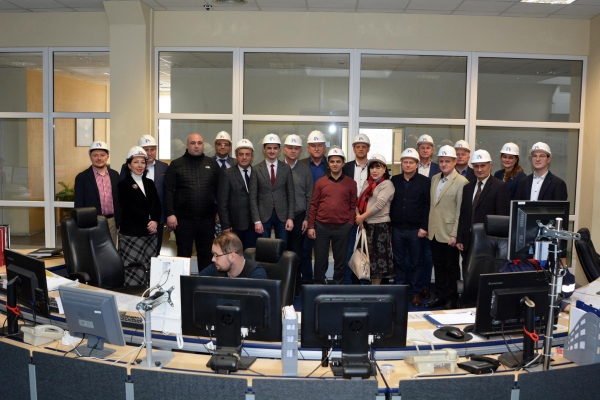Case studies, District heating, Municipal buildings and facilities, Others, RES, Residential buildings, Street lighting, Transport
Experience sharing program for Covenant of Mayors’ signatories “City2City” in Latvia – day 2

On March 19, 2019, the participants of the program “City2City” visited the joint-stock company “Rigas Siltums”, which is the main supplier of heat in the city of Riga.
The company is engaged in the production, distribution and sale of thermal energy, as well as provides maintenance of internal heating systems in buildings.
Most of the thermal energy, about 70% of the total, is purchased from large cogeneration plants owned by the state-owned Latvenergo JSC.
Other manufacturers supply about 0.05% of thermal energy. The rest of the heat energy is generated at the company’s stations: five large central heating plants and a number of small boiler houses.
For the production of heat and electricity, natural gas and chips are used as the main fuel. Thanks to the modernization of technologies, the company managed to increase the share of using wood chips as fuel up to 30%, and this figure can grow depending on the ratio of the price of natural gas and chips. In the case of a failure in the supply of natural gas, the company can also use diesel fuel as a backup source for heat production.
Rigas Siltums JSC manages and distributes 76% of thermal energy in the city of Riga (77% of thermal energy is used for heating residential buildings and for preparing hot water). The total length of the urban heating network is about 800 km, 72% of which belongs to the company.
During the presentation, the program participants familiarized themselves with the existing generating and distribution infrastructure of the company, with the main technical and economic indicators and technical parameters of existing plants, as well as with the company’s projects for the construction of new production facilities using modern technologies. After the presentation part, the program participants visited two stations for the production of thermal energy, working on natural gas and wood chips.
Thanks to the use of modern technologies for the combined production of heat and electricity and the deep utilization of heat from the exhaust gases, the company managed to achieve a significant reduction in the cost of production of heat energy at the level of 32-34 euro / MWh using natural gas and 30-32 euro / MWh – using wood chips .
At the same time, the average tariff for thermal energy for the population is about 44 Euro / MWh.
In the afternoon, representatives of the signatory cities visited a nine-story apartment building (36 apartments) residential building at Dombrovskogo Street, 49, in which measures were taken to reduce energy consumption, with the direct participation of the building management company.
The total cost of the project was 300,000 euros (152 euros / m2), of which 178,000 euros were paid by the apartment owners, and the remaining 122.000 euros was provided as co-financing by the European Regional Development Fund.
The project included insulation of the basement and basement of the building, replacement of windows and doors, roof repair, replacement and insulation of heating pipes, renovation of the ventilation system and other works.
As a result of the project, the energy consumption in the building was reduced by 43%.
Of the 4,000 multi-apartment buildings being discussed by the management company, weatherization activities have already been implemented in more than 100 sites.
In the future, it is planned to switch from individual work on the thermal insulation of individual buildings to the implementation of standard projects at the level of neighborhoods or residential areas.
